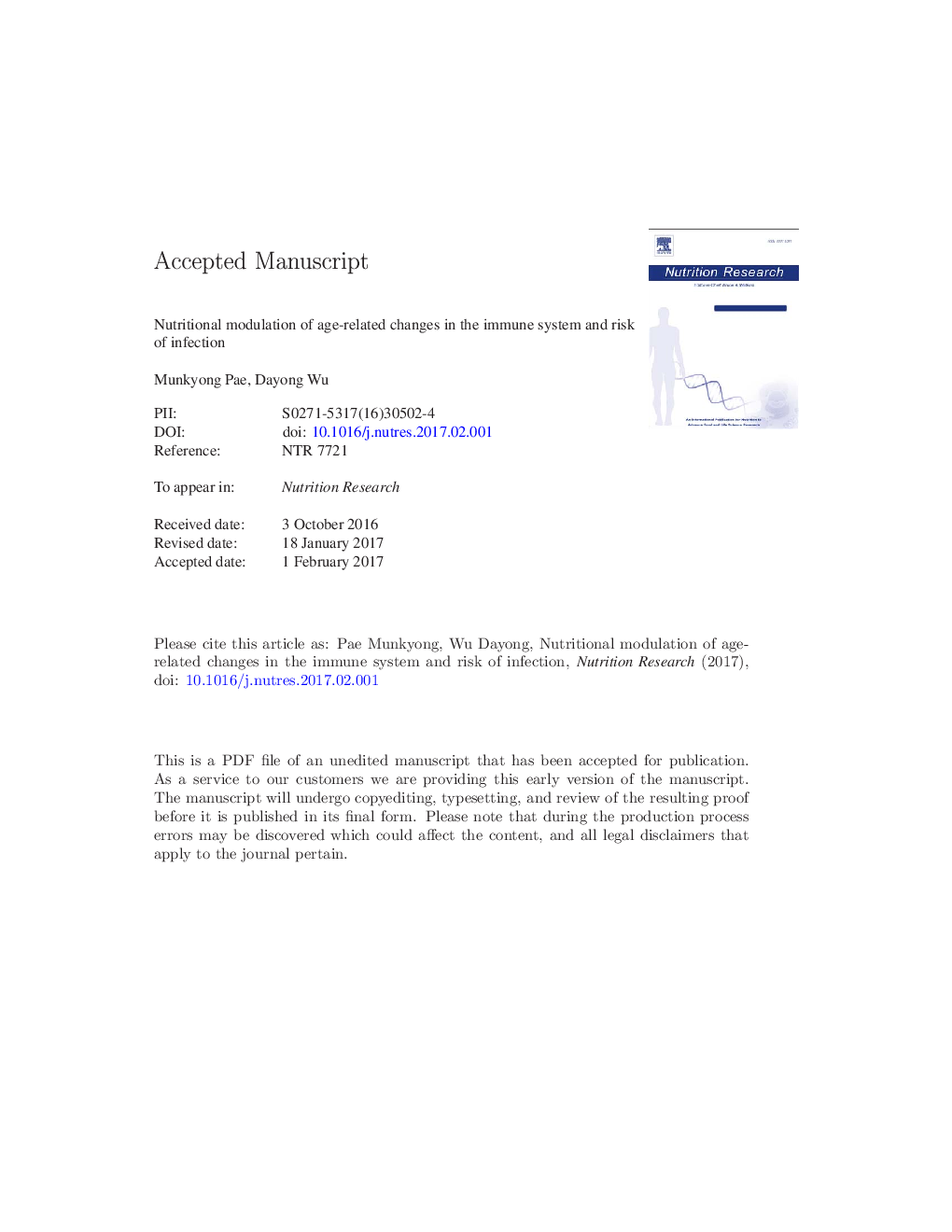| Article ID | Journal | Published Year | Pages | File Type |
|---|---|---|---|---|
| 5588566 | Nutrition Research | 2017 | 55 Pages |
Abstract
The immune system undergoes some adverse alterations during aging, many of which have been implicated in the increased morbidity and mortality associated with infection in the elderly. In addition to intrinsic changes to the immune system with aging, the elderly are more likely to have poor nutritional status, which further impacts the already impaired immune function. Although the elderly often have low zinc serum levels, several manifestations commonly observed during zinc deficiency are similar to the changes in immune function with aging. In the case of vitamin E, although its deficiency is rare, the intake above recommended levels is shown to enhance immune functions in the elderly and to reduce the risk of acquiring upper respiratory infections in nursing home residents. Vitamin D is a critical vitamin in bone metabolism, and its deficiency is far more common, which has been linked to increased risk of infection as demonstrated in a number of observational studies including those in the elderly. In this review, we focus on zinc, vitamin E, and vitamin D, the 3 nutrients which are relatively well documented for their roles in impacting immune function and infection in the elderly, to discuss the findings in this context reported in both the observational studies and interventional clinical trials. A perspective will be provided based on the analysis of information under review.
Keywords
RDAAPCDTHTh1PGE2PhytohemagglutininPMNCOX-2PDCMDCPHAConcanavalin APBMCT helper 1LPSVDR1,25-(OH)2DTLR1,25-dihydroxyvitamin D25-hydroxyvitamin DMϕantigen-presenting cellinterferonIFNinterleukinCon ANutritionrecommended daily allowanceToll-like receptorAgingPeripheral blood mononuclear cellPlasmacytoid dendritic cellDendritic cellsPolymorphonuclear cellNK cellsmyeloid dendritic cellsNatural killer cellsCyclooxygenase-2InfectionImmune functionconfidence intervallipopolysaccharideMacrophagesodds ratioProstaglandin E2SNPVitamin D receptor
Related Topics
Life Sciences
Biochemistry, Genetics and Molecular Biology
Endocrinology
Authors
Munkyong Pae, Dayong Wu,
